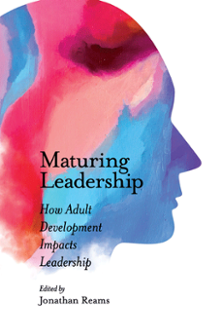
Index
Maturing Leadership: How Adult Development Impacts Leadership
ISBN: 978-1-78973-402-7, eISBN: 978-1-78973-401-0
Publication date: 3 April 2020
Citation
(2020), "Index", Reams, J. (Ed.) Maturing Leadership: How Adult Development Impacts Leadership, Emerald Publishing Limited, Leeds, pp. 283-294. https://doi.org/10.1108/978-1-78973-401-020201016
Publisher
:Emerald Publishing Limited
Copyright © 2020 Emerald Publishing Limited
INDEX
Note: Page numbers followed by “n” indicate footnotes.
- Prelims
- Introduction
- Chapter 1: Leadership 4.0
- Chapter 2: Leadership Development Laboratory
- Chapter 3: The Art and Science of Vertical Development
- Chapter 4: The Implications of Developmental Diversity for Leadership Education
- Chapter 5: I’ll Only Follow if I Trust You: Using Adult Development to Accelerate Trust
- Chapter 6: The Complex Choreography of Becoming a Coach
- Chapter 7: Transforming in Relationship: When Leader–Member Exchange Theory Meets Adult Development Theory
- Chapter 8: The Aware Leader: Supporting Post-Autonomous Leadership Development
- Chapter 9: The Meaning-making Structures of Outstanding Leaders: An Examination of Conative Capability at Postconventional Ego Development Levels
- Chapter 10: Dialectical Thinking, Adult Development and Leadership
- Chapter 11: Playing in the Sandbox: A Reflective Journey on the Development and Implementation of a Leadership Development Program within a Doctoral Program
- Chapter 12: Creating Scalable Leadership Development at a Large Company
- Author Biographies
- Index